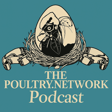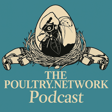
E7 Poultry Network Sustainability Hub: “LCA, Additives and Impact: Alltech Breaks It Down”
In this episode of the Sustainability Hub podcast, host Tom Willings is joined by Dr Harriet Walker and Jim Wynne from Alltech to explore how science, data, and nutrition are driving both performance and sustainability in poultry production.
Dr Walker shares her journey into the poultry industry, from an academic project in broiler nutrition to her current role as poultry technical specialist at Alltech.
She discusses the company's commitment to gut health and performance through products like Actigen, Bioplex, and Biomos, and explains how rigorous scientific meta-analyses have demonstrated improvements in feed conversion, egg production, mortality, and eggshell strength.
These gains, while incremental, can significantly enhance farm profitability and sustainability—especially when considered at scale.
Jim Wynne, from Alltech's environmental footprinting division ECO2, details how lifecycle analysis (LCA) provides a full-chain view of emissions - from hatchery to breeder to processing plant.
He explains how ECO2 has grown from a small UK dairy-focused start-up to a globally certified footprinting operation covering poultry, aqua, and pet food sectors.
Jim and his team help producers and retailers model emissions data using tools like PowerBI dashboards to benchmark and improve performance across supply chains.
The conversation highlights how environmental sustainability and animal performance are intertwined.
By improving gut health and nutrient absorption – particularly through more bioavailable organic minerals – farmers can achieve better feed efficiency, longer laying cycles, and lower mortality.
These outcomes reduce the environmental impact per unit of output while increasing profitability.
A 2% improvement in FCR or egg production, for example, can yield meaningful reductions in emissions and notable financial returns when applied across large flocks.
Harriet and Jim also touch on consumer expectations, retailer pressures, and growing interest from producers in environmental data – often driven by the need for green loan eligibility.
The discussion explores the challenges of transitioning away from high-soy diets, with new Alltech trials demonstrating how alternative proteins, such as peas, beans, lupins, and sunflowers, when combined with targeted feed additives, can maintain performance while reducing soy-related emissions by up to 10%.
They also explore regional nuances, comparing sustainability motivations across global markets, and the role of Alltech's "Planet of Plenty" vision in promoting science-backed agricultural improvement.
With roots in yeast fermentation and brewing, Alltech has maintained a family-owned business culture while scaling to over 5,000 employees worldwide.
Initiatives like internal skill-sharing challenges and community fundraising add a human element to a company built on complex science and global ambition.
The episode closes with reflections on the future – ranging from reduced antibiotic use to more holistic formulation of diets based on updated mineral science.
Whether the goal is improving food safety, enabling longer lay cycles, or reducing phosphorus in manure, the central message is clear: incremental gains in nutrition and footprinting deliver compounded benefits for animals, producers, and the planet.

